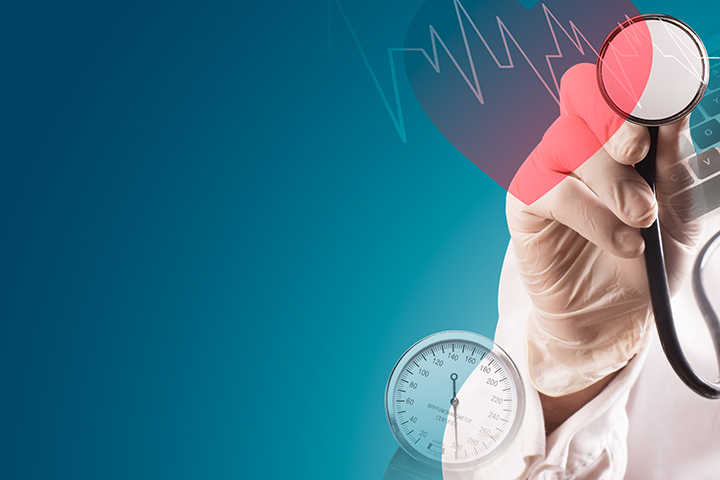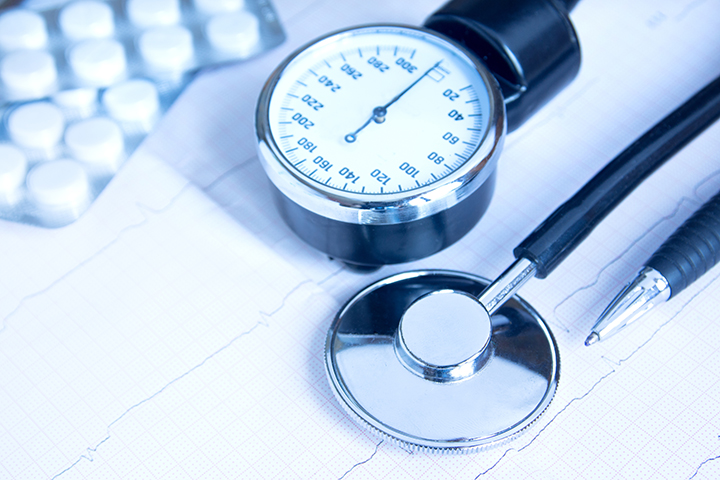The human body can experience distress in the blink of an eye due to many different types of ailments in a variety of ways. High blood pressure, or hypertension, most commonly occurs due to age, lack of activity, poor diet, or genetics. A heightened pressure that exceeds the prehypertension stage can result in a stroke, possibly through a condition known as atrial fibrillation.
How do hypertension and an irregular heart rhythm affect the body? We’ll look at the connection between the two, as well as their causes, symptoms, and remedies to help reduce the risk of stroke.

Source: Thinkstock/VadimZakirov
Stroke: A Leading Cause of Death in the U.S.
Strokes occur due to the blockage of the blood vessel that supplies the brain with much-needed blood. The number of stroke-related deaths remains high at approximately 800,000 per year. Since the number remains this high, researchers are taking a closer look at hypertension and atrial fibrillation to see how the risk of a stroke is affected.
Studies suggest three out of every four patients who have experienced a stroke for the first time had had high blood pressure. Afib, an irregular heart rhythm, was present in one of five cases.
Hypertension, Afib, and Stroke
A stroke occurs when the blood flow that provides oxygen to all the major organs, including the brain, experiences an interruption. When the circulation is not as efficient, brain cells start to die. This, in turn, leads to having a stroke and is also responsible for other illnesses such as dementia.
Hypertension changes the blood current by either pushing the blood against the vessels due to its own force or by creating a buildup or clot in the most exposed areas. When such irregularities occur in or around the brain’s blood vessels, the risks of stroke immediately increases. Atrial fibrillation also increases the risks of stroke because of its sudden, rapid pumping. Blood accumulates in the heart, exposing it to the risk of a clot developing that can then reach the brain.
High blood pressure and an irregular heartbeat both can increase the risk of stroke. Comparatively, Afib is the one which actually causes more potent risk factors according to Ralph L. Sacco, the professor and chairman of Neurology at Miller School of Medicine at the University of Miami. Dr. Sacco also points out that both conditions are as equally connected to each other as hypertension increases the possibility of irregular heartbeat.

Source: Thinkstock/Mizina
Reducing the Risk of Stroke
The process to reduce stroke risks begins by accepting a healthy lifestyle and adopting remedies that lower hypertension and Afib. Knowing the causes of high blood pressure and an irregular heartbeat will help you understand the roots of your condition. It should also aid in causing you to embrace the right lifestyle choices.
Here is quick list of remedies that can help you lower the risk of stroke:
- Take up a daily physical activity.
- Maintain a healthy weight.
- Plan out a healthy, daily diet. Your diet must include fruits, vegetables, whole grains, low-fat dairy, less salt and saturated/trans fats, and of course, less cholesterol.
- Avoid smoking and consuming too much alcohol.
- Monitor your blood pressure often to see how you progress.
Featured Image Source: Thinkstock/AndreyPopov
Sourced from: heart.org


